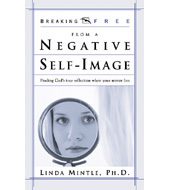 Have you noticed the trend? Companies trying to sell us hair and feminine products, soap and make-up are targeting girls with messages of empowerment. Stop being weak, telling people you are sorry and wallowing in low self-esteem! #GirlsCan!
Have you noticed the trend? Companies trying to sell us hair and feminine products, soap and make-up are targeting girls with messages of empowerment. Stop being weak, telling people you are sorry and wallowing in low self-esteem! #GirlsCan!
First it was Dove’s Real Beauty campaign, then the Pantene video told women to stop saying we are sorry, and now the Always video is declaring the phrase, “like a girl” not to be negative, but positive. Oh, and Cover Girl joins the fray with its #GirlsCan celebrity campaign!
So do girls and women really need this boost in self-esteem? Are we fragile, conflicted, insecure and in need of an esteem boost? Are we confused about our roles, wondering if we can be assertive, and unsure of how to run like a girl?
Hardly, it is the 21st century!
According to one study that looked at over 100,000 adolescent girls, self-esteem isn’t in the dumps like these empowering campaigns want us to believe. Yes, girls obsess more about their appearances during adolescence and thus are more prone to eating disorders, but boys and girls come up equal when it comes to self-esteem, especially related to academics. And boys actually fall short of girls on moral-ethical issues and feelings about their own behavior. Hmmm….maybe we should be targeting boys to stay strong.
In addition, Susan Harter at the University of Denver found that girls and boys were not different when it came to expressing their opinions, sharing feelings, letting others know what is important to them and saying what is on their minds. When both genders had parent, teacher and friend support, they developed strong voices.
Researchers Gentile, Twenge and Campbell concluded that the overall pattern of self-esteem among teens and young adults has increased over the past decade, not decreased. And while there is a dip in self-esteem at puberty, that dip is not as low as past years. It’s actually quite normal to see a dip in self-esteem when your body is changing at record speed. At the end of the study, the researcher noted that all the cultural emphasis on self -worth has been successful and declared “Mission Accomplished.”So it seems feminists need a new cause and this need to empower girls is much ado about nothing.
Studies also support the idea that the younger generations is more tolerant and supportive of equality. Now, this doesn’t mean they are more empathetic. In fact, we are seeing a growing trend towards narcissism. Maybe that is where campaigns to help girls should focus! Be more empathetic towards others, obsess less about yourself and find your identity in Christ, not through products or material things. Of course then there would be no product to sell!
If you are someone who struggles with self-esteem (Yes, there are those who do!), check out my book pictured above, Breaking Free from Negative Self-Image
Sources:


